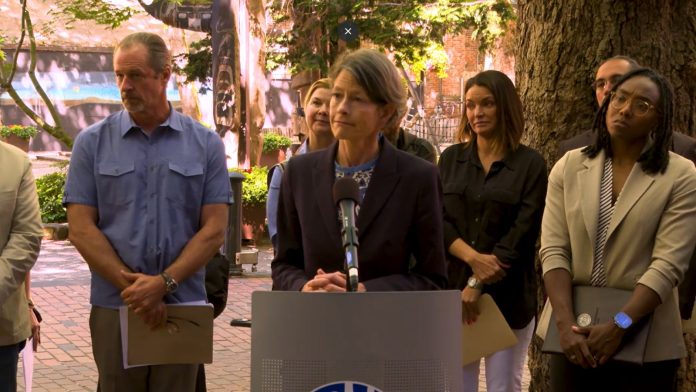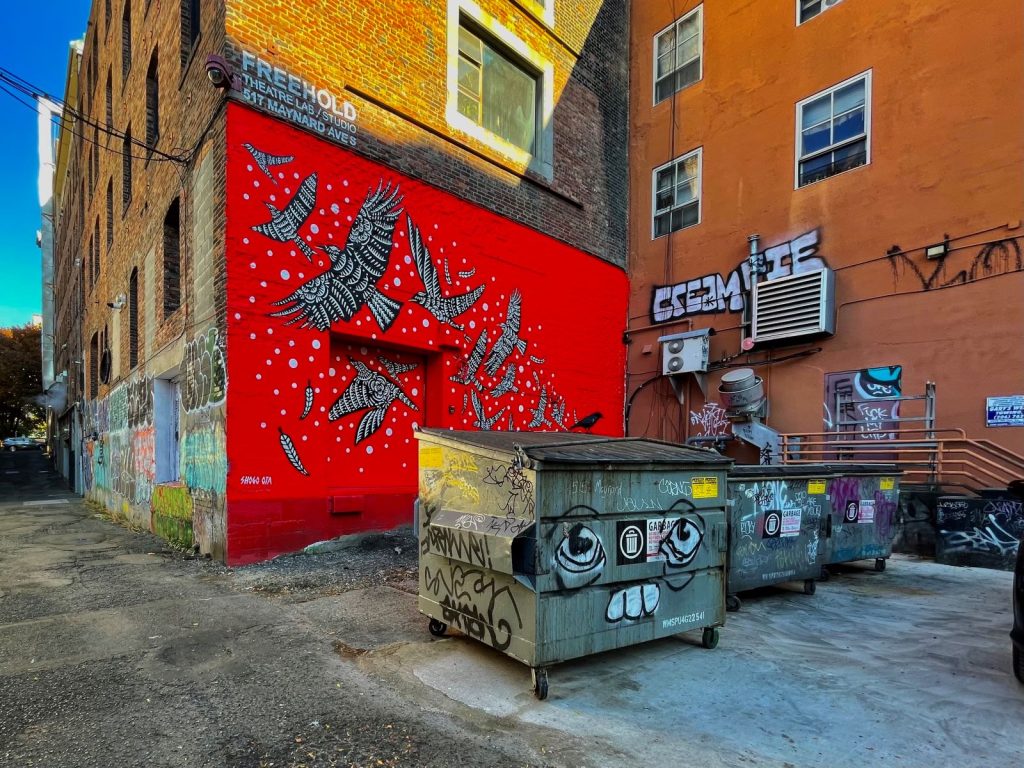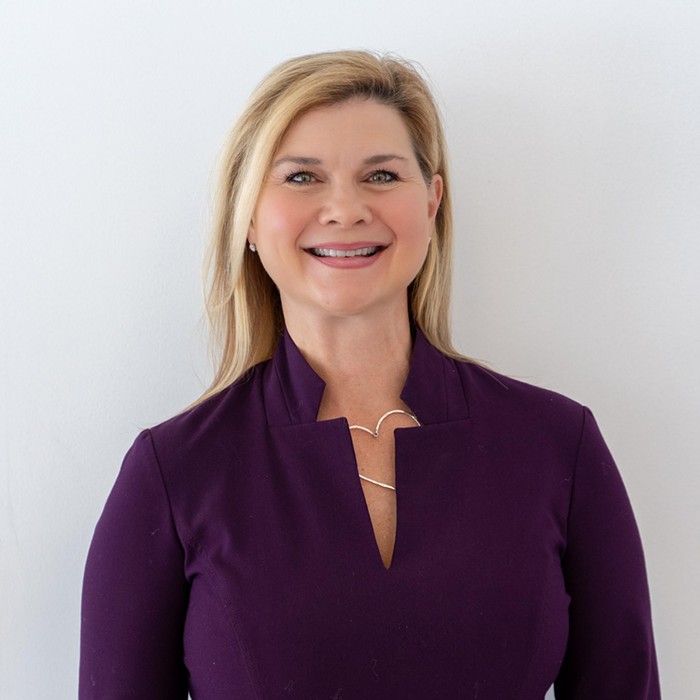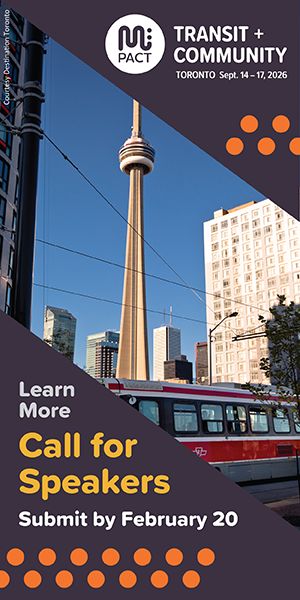
City council is ramping up criminalization and considering funding more addiction treatment services. Do their plans add up to a cohesive strategy?
Last Tuesday, the Seattle City Council voted 7-1 to pass changes to the city’s 16-year-old nuisance property ordinance that will expand the powers of the Seattle Police Department (SPD) to declare a business or residence a “chronic nuisance.”
The old law has been used 17 times in the 16 years it has been on the books, mostly against motels and nightclubs. The change seems to indicate a desire to enforce the law more actively.
Under the former law, the city considered properties to be a nuisance when a certain number of “nuisance activities” were documented within a specified period of time. Activities that qualified included class A felonies, drug-related activities, weapons violations, prostitution, assault and fighting, among others.
Now this list has been greatly expanded. The original proposal expanded the law to include liquor offenses. Councilmember Rob Saka added possessing or trafficking stolen property.
Sake tried to add several additional offenses, including cruelty to animals, noise violations, unlawful dumping of public waste, and other public health issues, such as rats. However, the council ultimately passed a compromise amendment that would not allow these non-criminal violations to count towards qualifying as a nuisance property, but instead allow authorities to demand correction of these violations on a property that was already qualifying.
Importantly, the new law also allows off-property nuisance activity to be considered when determining if a property is a chronic nuisance. This activity needs to be performed adjacent to the property in question, involving a person connected to the property, and with a nexus between the activity and the property.
“The expansion to off-site does represent a significant expansion of the city’s authority,” Ben Noble, the director of Central Staff, said during the bill’s first briefing. “I think there’s no question about that, and there really is a question of whether the due process measures that are in place are sufficient to balance the interest of the property owners and the interests of the public ultimately for public safety.”
The designation as a nuisance property allows the court to perform a variety of abatement activities that range from orders “that will reasonably abate the nuisance activity,” fines of $750 per day (up from $500 in the original law) against the person in charge, a civil penalty of up to $37,500 on the property owner (up from $25,000 in the original law), and suspension or revocation of City business licenses.
Saka said he brought forward the 50% increase in fines in order to keep pace with inflation.
“The City of Seattle is doubling down on a broken idea of public safety with its massively expanded property nuisance ordinance. Let’s be clear: this isn’t about safety; it’s about control, and it hands a shocking amount of power to those who will wield it against our most vulnerable neighbors,” said Shane Macomber, the Director of Operations for Real Change. “We’re talking about an ordinance that has swollen with new infractions, creating a wide-open door for harassment and targeted enforcement. Who pays the price? Our unhoused community members, low-income families, and Black and Indigenous people of color — the very folks already fighting for their right to exist in this city.”
Councilmember Dan Strauss brought forward an amendment that would exempt nonprofit social services providers from the new provision dealing with off-site activities. Strauss said he introduced the amendment due to a concern brought to him by a food bank in his district.
“This bill does give a large amount of discretion,” Strauss said. “So while I do not believe that this mayor would use it to target nonprofit social service providers, we want to make sure that it is clear in the law.”
The amendment passed 6-2, with Council President Sara Nelson and Councilmember Maritza Rivera voting against.
“I do think that this amendment unwittingly ties our hands,” Rivera said. She added that she has a nonprofit organization in her district that is a “bad actor.”
Nelson said she thought when the council passes laws that have heavy consequences, they should be applied universally.
“One of the problems that I heard from an actual small business owner when I was considering this was there were comments that sometimes what was going on in front of their business was spillover from a nonprofit,” Nelson said.
The amendment received strong support from local nonprofits.
“It seems both short-sighted and counterproductive not to support an exemption for nonprofits in this ordinance,” said Colleen Echohawk, current Interim Executive Director of the Seattle Indian Services Commission. “These organizations are on the front lines, serving community members during some of the most difficult times in their lives. If we penalize or displace them, we’re not solving problems — we’re pushing people out of services and onto the streets. Our human services agencies are a lifeline, and they must be protected, not punished.”
Councilmember Alexis Mercedes Rinck was the sole vote against the final property nuisance bill.
“The bill as amended in the Public Safety Committee goes far beyond the City Attorney’s Office in terms of financial penalties,” Rinck said. “But also critically, adding a bit of a kitchen sink of violations and otherwise noncriminal annoyances that could, in the wrong hands, be used by city government to shut down or put a lien on just about any business or home near the scene of a whole host of things that neither Chief of Police, City Attorney, nor any other City of Seattle employee should be spending our resources on.”
The check is coming due
The nuisance property expansion is part of the city council’s push in the last year and a half to expand criminalization and add low-level charges to the books that are within the domain of Seattle City Attorney Ann Davison.
The city council also passed a bill that will make graffiti taggers subject to a civil penalty of up to $1,500 per violation, as well as being liable for cleanup costs. Graffiti is already considered to be either a gross misdemeanor or a felony, depending on how much property damage it causes, meaning the new bill is further criminalizing something that’s already illegal. Going after graffiti taggers has been a long-time priority of Mayor Bruce Harrell.

Davison’s original version of the bill would have allowed her to seek penalties from people who “encourage” graffiti by posting pictures on Instagram, but this provision was struck by an amendment from Councilmember Joy Hollingsworth.
The new nuisance property and graffiti legislation will redirect resources from SPD, the City Attorney’s Office, and the Seattle Municipal Court that could have otherwise been used for other priorities.
Meanwhile, at a press conference on Tuesday, Mayor Harrell announced the city has hired almost 100 new police officers as of July 1. At the end of last year, SPD had estimated they’d hire 120 new officers over the course of 2025, a number they seem set to surmount.
Whether it’s paying for more officer salaries than anticipated, hiring more analysts for their real time crime center, or deciding to expand the city’s CCTV camera zones three weeks after the original CCTV pilot began, Harrell and the city council are going to have some hefty costs to address, all while dealing with a 2026 budget deficit of at least $150 million. The city’s budget situation looks even worse looking forward to 2027.
Nelson floats spending plan for proposed sales tax bump
One possible solution to this problem is the new authority granted by the state in this year’s legislative session for a 0.1% public safety sales tax. Proceeds from this tax are required to be spent on a widely defined list of investments that include programs reducing homelessness and improving behavioral health.
The King County Council is expected to vote on their version of this public safety sales tax this week. Given another King County proposal to increase the sales tax by 0.1% to fund transit, Seattleites could see their total sales tax burden increase from 10.35% to 10.65%.
But Nelson is interested in using the public safety tax to increase investment instead of filling the budget hole, proposing a resolution to spend up to 25% of the proceeds of this tax for addiction treatment services. The resolution specifies that the investments should be “aimed at creating a pathway to recovery for individuals experiencing chronic homelessness and individuals diverted from the criminal legal system.”
Nelson referred to last year’s auditor’s report on overdoses and crime to back up her resolution.
“That really does show the link between addiction and fentanyl and our public safety crises. We also know that it is driving cycles of chronic homelessness in people that we see on the street every day,” Nelson told The Urbanist.
At a hearing before Nelson’s Governance, Accountability, and Economic Development Committee earlier this month, Daniel Malone of the Downtown Emergency Service Center (DESC) discussed promising recent drug treatment innovations and enhancements. “On the opioid side, over the past year, we’ve seen markedly improved success in assisting people to start and stay on medications for opioid use disorder,” Malone said. “Specifically, these advances are improving our ability to be successful with people who are using fentanyl very chaotically.”
However, Malone said programs for the opioid treatment enhancement are at capacity, and there is a need for field-based services.
Malone also recommended the city begin a pilot for treatment of stimulant use disorder in order to innovate in this space, given the current limited treatment options.
Nelson told The Urbanist one of the priorities she’s most excited to fund is DESC’s use of GLP-1s to treat methamphetamine addiction, which could expand treatment options in the future.
Because the public safety tax is estimated to bring in $38 million, the amount of Nelson’s suggested investment is a bit less than $9 million a year, which she has suggested using for a long list of purposes related to addiction treatment, including stabilizing Law Enforcement Assisted Diversion (LEAD), a local diversion program that is perennially underfunded. Nelson acknowledged that this investment isn’t sufficient to meet the need for resources.
“What I’m really trying to do by putting forward a list and putting forward a proposition is to put treatment at the center of the city’s policy agenda,” Nelson said. “I’m talking about a comprehensive, holistic approach that really does look at the problem of addiction and the ubiquity, deadliness, and inexpensiveness of fentanyl and what that is doing to our city.”
In her opening comments for the committee discussion on this proposal, Nelson was quick to say she isn’t calling for an increase in the sales tax, but is acting because Harrell has “expressed an interest in implementing it.”
“I had to come out of the gate right now to stake a claim,” Nelson told The Urbanist. “I wanted to make sure that people understand that public safety is broader than simply funding more officers.”
Harrell’s spokesperson Callie Craighead said the sales tax increase is one potential option to increase revenue, but the Mayor’s Office is currently more focused on the B&O tax restructure proposal.
“We’ll analyze Councilmember Nelson’s proposal in full when we receive it in the context of the overall budget, revenue solutions, and public safety needs,” Craighead said. “Generally speaking, Mayor Harrell has been a strong supporter of a dual public health and public safety approach to the crisis of fentanyl.”
“I think that everybody in this room would probably say on the record that they are not in support of regressive taxes, sales tax being perhaps the most regressive on our books,” Nelson repeated later in her committee meeting. “However, it’s a tool that we are being presented with by the legislature.”
Queuing up debate over addiction treatment strategy
One of the big questions on the table is whether this money would go to fund evidence-based treatment options, emerging therapies with promise as described by Malone, or interventions that have been shown to be counterproductive and potentially harmful, such as forced treatment.
The inclusion of providers such as We Heart Seattle and The More We Love that subscribe to treatment-first philosophies and criticize harm reduction approaches in Nelson’s press conference announcing the resolution raised some eyebrows. We Heart Seattle founder Andrea Suarez stood behind Nelson at the press conference but later lashed out at fellow providers during public comment at city council, arguing they were coddling drug users.

“There is no decision on what this would fund,” Nelson said. “There are so many things on that list that there is no foregone conclusion of which solution is going to get how much money. I am simply presenting a range of things that deserve funding.”
Nelson said she wanted to represent the priorities of the service providers she’s been meeting with for months: DESC, Purpose Dignity Action (PDA), and Evergreen Treatment Services. She emphasized her support of the broadest possible range of approaches, which may include treatment-first approaches.
“There is no doubt we need to invest more in evidence-based treatment – I just wish Councilmember Nelson had a more consistent record that could move our city in the right direction,” said Dionne Foster, who is currently challenging Nelson for her council seat. “Just this week she voted against an amendment that would exempt nonprofit providers from increased prosecution from the city’s nuisance ordinance. We shouldn’t be supporting with one hand and harming with the other.”
The resolution is likely to receive a committee vote on July 24, which positions it to easily receive a final vote before the council’s summer recess later in August. The public safety sales tax legislation would need to be approved by October in order for the City to implement it on January 1, 2026.
Amy Sundberg is the publisher of Notes from the Emerald City, a weekly newsletter on Seattle politics and policy with a particular focus on public safety, police accountability, and the criminal legal system. She also writes science fiction, fantasy, and horror novels. She is particularly fond of Seattle’s parks, where she can often be found walking her little dog.


